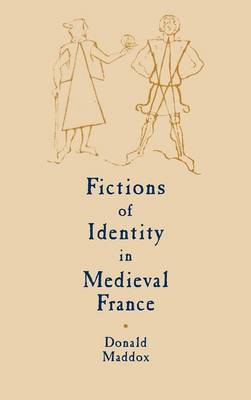Cambridge Studies in Medieval Literature
2 total works
In this study of vernacular French narrative from the twelfth century through the later Middle Ages, first published in 2000, Donald Maddox considers the construction of identity in a wide range of fictions. He focuses on crucial encounters, widespread in medieval literature, in which characters are informed about fundamental aspects of their own circumstances and selfhood. These always arresting and highly significant moments of 'specular' encounter are examined in numerous Old and Middle French romances, hagiographic texts, epics and brief narratives. Maddox discloses the key role of identity in an original reading of the Lais of Marie de France as a unified collection, as well as in Arthurian literature, fictions of the courtly tryst, genealogies and medieval family romance. The study offers many new perspectives on the poetic and cultural implications of identity as an imaginary construct during the long formative period of French literature.
Chrétien de Troyes was one of the most important medieval writers of Arthurian narrative. A key figure in reshaping the 'once and future fictions' of Arthurian story, he was instrumental in the late twelfth-century shift from written and oral legendary traditions to a highly sophisticated literary cultivation of the Old French verse romance. While examining individually each of Chretien's five Arthurian romances, Donald Maddox looks at their coherence as a group, suggesting that their intertextual relations lend a harmony of meaning and design to the ensemble as a whole. Central to his argument is the focus on customs, which provide unity within as well as among the works while conveying an acute sense of the vulnerability and dissolution of feudal institutions in an age of social crisis and transition.

